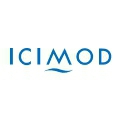


The Hindu Kush Himalaya (HKH) region stretches 3,500 km across Asia, spanning eight countries – Afghanistan, Bangladesh, Bhutan, China, India, Myanmar, Nepal, and Pakistan. Encompassing high-altitude mountain ranges, mid-hills, and plains, the zone is vital for the food, water, and energy security of around two billion people and is a habitat for countless irreplaceable species. It is also acutely fragile and at the frontline of the impacts of the triple planetary crisis of climate change, pollution, and biodiversity loss.
The International Centre for Integrated Mountain Development (ICIMOD), based in Kathmandu, Nepal, is an international organisation established in 1983, that is working to make this critical region greener, more inclusive and climate resilient. For more information, read our Strategy 2030 and explore our website.
The Hindu Kush Himalaya (HKH) region stretches 3,500 km across Asia, spanning eight countries – Afghanistan, Bangladesh, Bhutan, China, India, Myanmar, Nepal, and Pakistan. Encompassing high-altitude mountain ranges, mid-hills, and plains, the zone is vital for the food, water, and energy security of around two billion people and is a habitat for countless irreplaceable species. It is also acutely fragile and at the frontline …
Views: 2129 | This job is expired 11 months ago
Action Area B: Stimulating Action for Clean Air
Strategic Group 1: Reducing Climate and Environmental Risks
About SG 1: Reducing climate and environmental risks
This SG focuses on managing the risks, including those that are transboundary, relating to water, cryosphere, land, and air. It works on improving the understanding and communication of risks and their implications for the mountain peoples’ health, livelihoods, and safety, as well as on what they mean for policy responses and for future-proofing development investment. In addition to the testing and piloting of solutions to reduce these risks, in close collaboration with our RMCs (Regional Member Countries) and partners, a key feature of this SG is to build more regionally consistent and coherent enabling environments for risk management, whether through dialogues or networking, or through national and regional policy solutions. The transboundary elements of this SG are especially important but also challenging to manage. The work of this SG has also links with relevant areas of SG2 and SG3.
Position Overview:
This position will be housed within Action Area (AA) B - Stimulating Action for Clean Air (AAB) under Strategic Group 1 - Reducing Climate and Environmental Risks. This Action Area focuses its attention on the significant impacts of air pollution on human health, economic development, climate, and the environment. Air pollution levels are high across the HKH and air pollutants travel without respecting borders. At the same time, there are huge gaps between the actual air quality outcomes being currently achieved in the HKH region, and regional and international goals and targets. This is partly due to the lack of cost-effective and implementable solutions, as well due to a lack of understanding on which solutions to prioritise.
The position of Air Pollution Mitigation Specialist (henceforth, mostly Specialist) will focus on the identification of priority sectors for solution development and then the co-design of effective solutions, in close collaboration with relevant partners, followed by the testing of their proof of concept through rigorous evaluations. Another key element will be to take these air quality solutions to scale, working alongside key partners (public and private) whilst also working on an enabling policy and institutional environment for the uptake and implementation of these solutions.
This Action Area has been working with the World Bank and nominated government representatives from 24 institutions in Bangladesh, India, Nepal, and Pakistan to identify a ‘road map’ for collaborative action on air pollution mitigation. The first meeting to take this forward took place from 14–15 December 2022 with a science–policy dialogue (SPD) in Kathmandu to deliberate on the critical need to apply localised and region-specific air quality-monitoring mechanism, management, and policy tools to tackle the escalating challenge of transboundary air pollution. A second SPD took place in Thimphu (Bhutan) from 26–27 June 2024 and the representatives of countries and states encompassing the Indo-Gangetic Plains and the Himalayan Foothills agreed to develop a coordinated structure based on the experience of international initiatives and regional frameworks. These have all been positive steps towards building an enabling environment and leveraging the necessary investment to put effective air pollution mitigation policies and practices in place.
As ICIMOD aims to take a lead role in supporting the development of evidence-based changes in policy and practices on clean air in the HKH region, air pollution mitigation is assuming an increasingly important role. It requires the identification of relevant technologies and practices and the design and development of initiatives and projects to implement effective solutions based on these techniques. This will be a core focus of this new position.
This Action Area is configured around two interrelated work areas, which in ICIMOD are called Interventions:
Responsibilities
The Air Pollution Mitigation Specialist will be responsible for delivering results in line with the commitments we have made in our Strategy 2030: Moving Mountains and our Medium-Term Action Plan V (2023–2026): Embracing Change and Accelerating Impact, as well as the associated Results Framework 2023–26.
As a recognised expert in the field of air pollution mitigation strategies, policies, and practices, the Specialist will be responsible for:
1. Identifying and promoting the best available air pollution solutions
2. Bringing together and engaging closely with key stakeholders for the uptake of solutions and to leverage new investment
3. Building a robust, evidence-based system for effective air pollution mitigation strategies
4. Planning, monitoring, and reporting (PMR)
5. Building strong regional and global networks
6. Strengthening capacity
Minimum qualifications and experience
ESSENTIAL
PREFERRED
COMPETENCIES
Reporting and supervising
The Air Pollution Mitigation Specialist will report to the Intervention 2 Manager of Action Area B - Stimulating Actions for Clean Air. The Specialist will also work in close collaboration with other Action Areas, where relevant.
Location
You will be working in a cross-cultural, impact-oriented environment at ICIMOD’s head office in Kathmandu, Nepal. Frequent travel in the HKH region will be required. Kathmandu is a lively and exciting place to live. Its crime rate is low; the people are friendly; the living costs are reasonable; the food is delicious (with a range of local and international cuisines); and there are a good number of local and international schools. Then there are amazing trekking trails to explore; the excitement of safaris and whitewater rafting; a charming nightlife; and a vibrant culture.
Duration
Three years, with a probation period of six months. There is a possibility of extension subject to performance and ICIMOD’s future funding levels.
Remuneration
This is an international position at ICIMOD. The starting annual gross salary for this position is USD 39,723/- (negotiable, based on experience and qualifications). The gross salary covers basic salary, provident fund, family/post adjustment allowance, and child/dependency allowances. The salaries and benefits at ICIMOD are competitive compared with other international organisations. We also offer a comprehensive benefits package which includes insurances (medical, life, and accidental), children’s education grant for maximum 2 children below 18 years of age, severance pay, paid leave (for 30 holidays and 10 public holidays per year), and day care.
For expatriates, there is a tax exemption in Nepal; but they are responsible for their home country’s tax payments. Expatriate staff are entitled to housing allowance, annual home leave ticket, shipment of personal effects, and an installation and repatriation allowance.
ICIMOD’s core values
Our core values are integrity, neutrality, relevance, inclusiveness, openness, and ambition. These values are an expression of our culture and are central to the guiding beliefs and principles of our work and behaviour. Our core values will lie at the heart of ICIMOD operations and delivery. They will underpin everything we do and frame how we work with our partners. They reflect our founding intentions and the balances we seek to hold, while equipping ourselves for the future.
Diversity, equity, inclusion, and safeguarding
ICIMOD’s human resource selection process is based on the qualifications and competence of the applicants. As an employer, ICIMOD is committed to promoting diversity, equity, and inclusion, and offers equal opportunities to applicants from all backgrounds and walks of life, including but not limited to gender, age, national origin, religion, race, caste, ethnicity, sexual orientation, disability, or social status. ICIMOD strongly encourages applications from all eligible applicants, especially women, from all parts of the HKH region.
ICIMOD is dedicated to establishing and upholding a safe and nurturing work environment, where all its employees can participate fully and meaningfully without fear of violence, harassment, exploitation, or intimidation. Any type of abuse or harassment, including sexual misconduct (or child abuse), by our staff, representatives, or stakeholders is not condoned or tolerated.
This job has expired.









